Editor:
Brandon Sweet
University Communications
bulletin@uwaterloo.ca
WISA's first Annual General Meeting takes place today
Today, Provost Dr. James Rush addressed an audience of more than 100 faculty, industry, and government guests at the first Annual General Meeting (AGM) of the Waterloo Institute for Sustainable Aeronautics. The provost highlighted the alignment with WISA activities with the strategic plan of the University of Waterloo including:
- The approval and upcoming September 2022 launch of the Collaborative Aeronautics Program (CAP), which is a new interdisciplinary graduate program that will enhance existing Masters and Doctoral programs with a foundational understanding of aeronautics. The CAP includes academic units from all 6 faculties as well as a network of industry and government partners.
- WISA’s announcement of an upcoming 1-day conference and trade show called the Sustainable Aeronautics Summit which will be held at the Region of Waterloo International Airport (YKF) on October 5, 2022 to promote knowledge translation.
- The results of the WISA Design Competition, which challenged teams of students to propose architectural designs for the flight school of the future, prioritizing the sustainability of flight operations.
Watch a Youtube video about the University of Waterloo's Collaborative Aeuronautics Program (CAP):
University of Waterloo team receives funding to investigate the lack of family-sized apartment housing in Waterloo

This article was originally published on Waterloo News.
Three researchers from the University of Waterloo’s Faculty of Environment have been awarded funding from the Social Science and Humanities Research Council of Canada (SSHRC) to work with the community to investigate the lack of family-sized apartment housing despite the recent building boom in the Region of Waterloo.
The affordable housing crisis in Waterloo Region is especially apparent for families due to a lack of suitable low-rise, high-density housing such as low-rise multi-bedroom apartments, row houses, and townhomes.
“These kinds of units are referred to as ‘the missing middle,’” said School of Planning professor Dawn Parker. She added that providing more suitable housing for families in high-density areas such as the central transit corridor would permit a greater number of residents to “grow in place” and have access to transit-oriented development. It would also help the Region to get closer to its carbon reduction goals.
“We are so excited and grateful to the many partners who have been willing to come to the table to collaboratively explore potential solutions to our deeply complex local housing challenges,” Parker said. “Our research builds on our previous productive partnerships and adds valuable new collaborators in the for-profit and non-profits development sectors.”
Professor Parker, Sean Geobey, and Martine August, all professors at Waterloo, have been developing a three-year project titled, “Why did the ‘Missing Middle’ miss the Train?”
By working at the grassroots level with the development industry, the community and public officials, the team hopes to explore local barriers explaining the “missing middle” and identify feasible and efficient potential solutions, such as developing a “missing middle” site plan and finance typologies. Finally, they will test the solutions using land and housing market simulations.
Waterloo Region, in particular, offers a rich backdrop for the work. In 2019 its ION light-rail transit in Waterloo Region was launched with the mission to move people and intensify land use. Those objectives have been reached as more than 2.6 billion dollars were invested in the corridor, allowing more high-rise residential buildings to be developed. However, at the same time as the development, housing in Waterloo Region became much less affordable.
“Developers primarily built single bedroom units to maximize margins, “said Parker. “These units served the Region’s young tech sector workers but failed to meet the needs of families, who are being pinched by increasing demand for a finite number of detached and semi-detached homes.”
The team's research directly relates to provincial and federal government calls to identify housing supply barriers, as well as solutions. The team’s research is also in line with the Faculty of Environments Strategic Plan by collaborating with external partners to shape their research agenda and co-create and mobilize knowledge.
Waterloo faculty members elected to the Canadian Academy of Engineering
This article was originally featured on the Office of Research's website.
Seven University of Waterloo faculty members spanning the Faculties of Engineering, Mathematics, and Environment, have been elected as Fellows to the Canadian Academy of Engineering (CAE).
The CAE is the national institution through which individuals, who have made outstanding contributions to engineering in Canada, provide strategic advice on matters of critical importance to Canada and to Canadians. Fellows of the CAE are nominated and elected by their peers, in view of their distinguished achievements and career-long service and are committed to ensuring that Canada’s engineering expertise and experience are applied to the benefit of all Canadians.
The newly elected Fellows are:
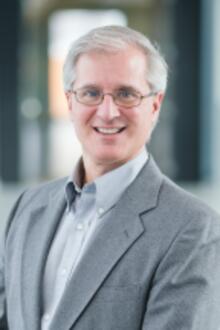
David Clausi
David Clausi is a Professor in Systems Design Engineering and the Associate Dean of Research & External Partnerships (ADR) for Engineering. He is a renowned computer vision expert who has made exceptional research, entrepreneurship, and leadership contributions in multiple fields including biomechanics, biomedical, remote sensing, and sports analytics. A highly accomplished researcher, inventor and scholar, he has designed algorithms to interpret satellite imagery, detect skin cancer, model embryonic development, and automate ice hockey analytics. As ADR, he has strategically grown Waterloo Engineering and taken leadership to raise the University’s research profile.
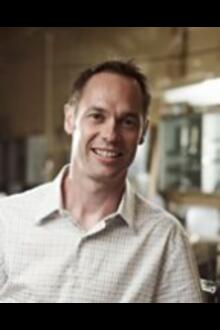
Duane Cronin
Duane Cronin is a Professor in Mechanical and Mechatronics Engineering, a Canada Research Chair in Trauma Biomechanics and Injury Prevention, and an internationally recognized expert in trauma biomechanics, human body modelling (HBM), and material characterization. He established a new Canadian research program to link materials, impact, and trauma biomechanics research, significantly advancing the fields of crash safety and protection of humans in extreme environments. Professor Cronin and his team have developed leading computational HBMs used globally by industry, government and academics to improve human safety. Professor Cronin’s high level of scholarship and dramatic impact on the academic community and industry demonstrates his global presence and the impact of innovative research to save lives.
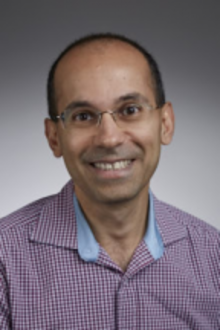
Karim Karim
Karim Sallaudin Karim is a Professor in Electrical and Computer Engineering, Associate Vice-President, Commercialization and Entrepreneurship, and a Founder and the Chief Technology Officer of KA Imaging. Professor Karim both pioneered innovative X-ray technologies and then led the commercialization effort via KA Imaging. His research has led to the world’s first portable, dual energy X-ray detector, with superior accuracy that enables early disease detection of cardiopulmonary and musculoskeletal disorders. The technology is now used in hospitals in seven countries to replace black and white X-rays. Professor Karim has 250 academic publications and 80 international patents.
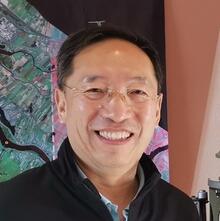
Jonathan Jun Li
Jonathan Li is a Professor in Geography and Environmental Management and a world-class researcher in geomatics and remote sensing. His pioneering contributions in AI-based earth-observation image understanding have substantially impacted the development of high-definition mapping technology in Canada and beyond. His innovations include the generalized point-cloud descriptors and the intelligent point-cloud to 3D model convertors, which have significantly advanced the field of 3D vision. He has published 320+ journal papers and trained 120+ graduate students and post-doctoral fellows. He received the Samuel Gamble Award and the Geomatica Award. He is the President-elect of the Canadian Institute of Geomatics and a Fellow of the Engineering Institute of Canada.

Ming Li
Ming Li is a University Professor in the Cheriton School of Computer Science. He is recognized for his contributions in building large-scale bioinformatics systems that have enabled modern proteomics projects worldwide, his contributions in designing an antibody sequencing pipeline that has helped to enable a modern antibody sequencing industry, his contributions to significantly improving de novo sequencing accuracy which is key to enable personalized cancer immunotherapy, and his contributions to a modern information theory Kolmogorov complexity via his book “An introduction to Kolmogorov complexity and its applications” that is read and cited widely and has impacted people’s conception of modern information as well as applications of the such understanding to engineering, technology, and science.
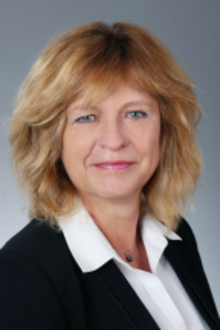
Maria Anna Polak
Maria Anna Polak is a Professor and University Research Chair in Civil and Environmental Engineering. She is renowned in the field of structural engineering, with pioneering contributions to the design and testing of concrete and reinforced concrete structures. Her innovations include new technologies for the retrofit of concrete slabs, powerful analysis tools for evaluation and testing of design standards, global structural damage assessment methods, and fibre-reinforced polymers. Implemented worldwide, Professor Polak’s work has directly contributed to international standards for infrastructure design. She sits on numerous international standards committees, is a Fellow of the American Concrete Institute and the Canadian Society for Civil Engineering and is recipient of prestigious Alexander von Humboldt Fellowships.
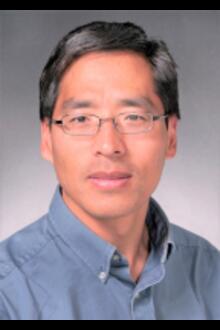
Zhongchao Tan
Chao Tan is a Professor in Mechanical and Mechatronics Engineering and an international authority on filtration and separation technologies. His scholarly publications have reached $1.7 million downloads globally; his award-winning research and innovation significantly strengthened Canada’s global leadership in sustainability, including a major patent licensed by Enersul Inc. As a visionary leader, Professor Tan spearheaded multiple platforms, creating a positive and inclusive environment for knowledge mobilization, talent exchange, and training of the next generation of young engineers with a global vision. He is a Fellow of the Canadian Society for Mechanical Engineering and received numerous other scholarship-based awards; his innovative teaching method and textbooks also won him multiple teaching awards.
Colouring outside the lines

By Brian Caldwell. This article was originally published on Waterloo News.
A graduate of the Waterloo School of Architecture has been recognized by a national organization for young entrepreneurs for her work to make fashion greener.
Iris Redinger (BAS ’21) was one of five winners of Mitacs Entrepreneur Awards honoured at a recent event in Montreal for her Waterloo-based startup company, Material Futures.
Supported by several entrepreneurial programs at the University of Waterloo, including Velocity and the Engineer of the Future Fund, Redinger launched the company in 2018 to help reduce the environmental impact of the fashion industry.
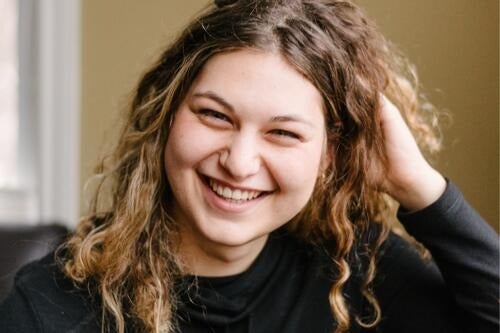
Iris Redinger graduated last year from the Waterloo School of Architecture.
Her innovative solution uses micro-organisms to produce all-natural, biodegradable dyes, essentially growing colour that can be easily substituted in existing manufacturing processes. She hopes to launch commercial products based on the technology, which also has potential applications in industries including cosmetics and plastics, next year.
The awards recognize former Mitacs interns who turn research discoveries into businesses that impact the lives of Canadians.
“To build on Canada’s growing success, we need to mobilize and invest in the best,” François-Philippe Champagne, the federal minister of innovation, science and industry, said in a media release announcing the awards.
'All possible through the architectural program'
Redinger, who won in the Environmental Entrepreneur category, learned to sew at a young age and got invaluable insight into the fashion industry during a co-op term with Dutch designer Iris van Herpen in her first year of studies at Waterloo.
Her experience included work on a dress that was shown during Paris Fashion Week and is now part of the collection at the Royal Ontario Museum.
“That was my first exposure to the fashion world and that was all possible through the architectural program,” Redinger said in a recent media interview.
Mitacs, a non-profit organization backed by federal and provincial governments, is dedicated to fostering growth and innovation in Canada by leveraging research from academic institutions.
Main photo by Dilara Baltaci from Pexels.
Friday's Notes
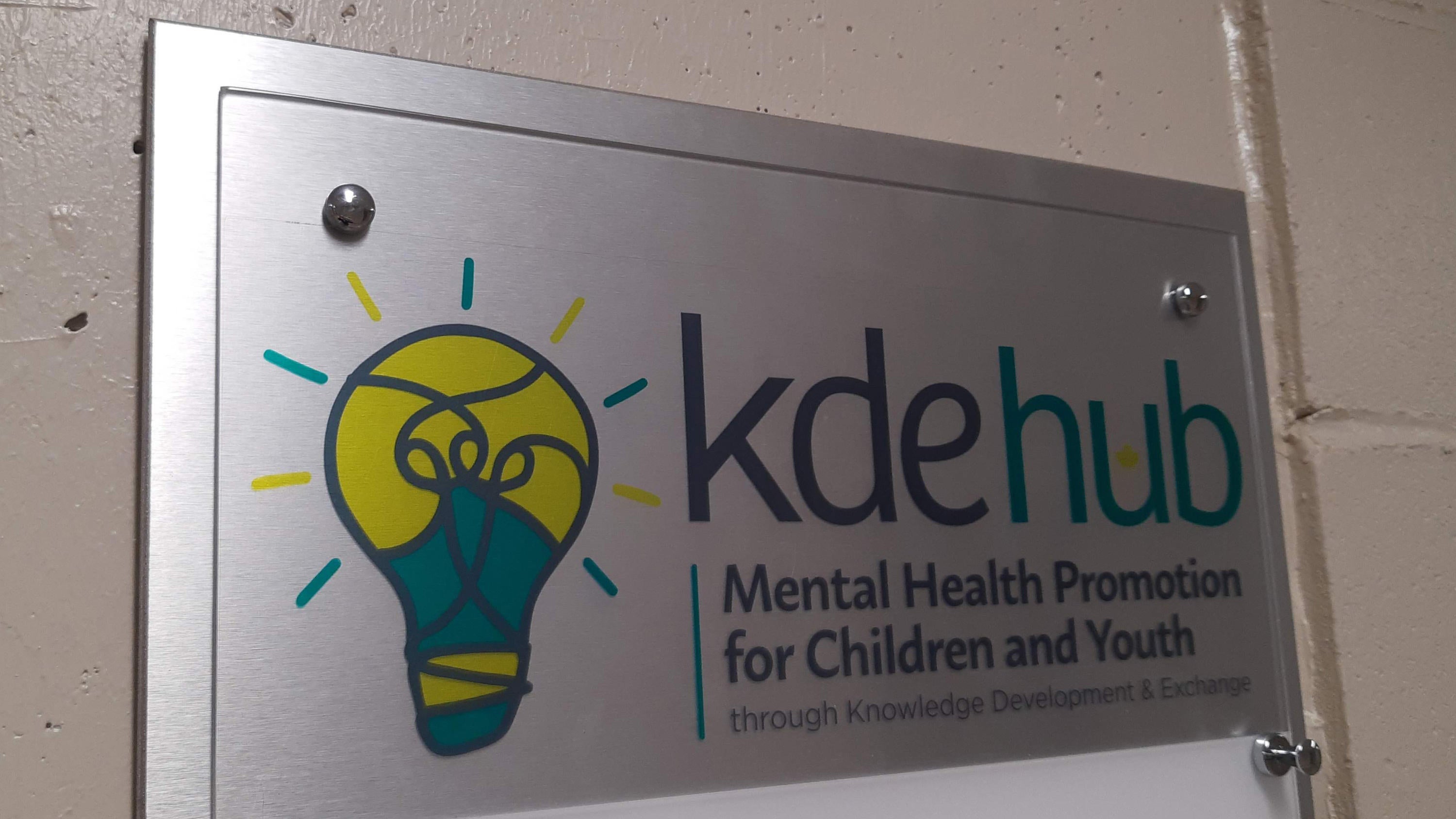
Last week, the Honourable Carolyn Bennett, Minister of Mental Health and Addictions, publicly announced the second phase of funding for the Mental Health Promotion Innovation Fund (MHP-IF) for Ontario projects. The Knowledge Development and Exchange (KDE) Hub, housed at Renison University College, is pleased to share that this announcement included $2 million of funding for the KDE Hub. This funding supports the KDE Hub’s work to advance mental health promotion for young Canadians, particularly those who are part of vulnerable populations. Learn more about the KDE Hub.
The next PDAG seminar takes place today from 9:00 a.m. to 9:45 a.m. "WCMS 3 - Migrate and be GREAT" will feature presenter Charlotte Armstrong and moderator Stephen Markan. The event takes place on Microsoft Teams.
The seminar will explore the migration from WCMS 2 to WCMS 3. This migration is more than switching Drupal versions and design. For a successful migration there is a review, preparation and backend tweaking. Charlotte will provide an overview of the process and provide guidance on how to get from 2 to 3 successfully.
Charlotte Armstrong has worked in guiding administrative and technical change for much of her career. Charlotte is currently part of the IST DCA Web Development team (reporting to Joe Kwan) as a Client Support Specialist. Charlotte’s team works with website leads and site owners to prepare, migrate and remediate sites as they move through the switch from WCMS 2 to WCMS 3. Outside of IST, Charlotte has been an active community member involved in groups and events such as Nerd Nite KW and Dance Mix 90's at THEMUSEUM.
This session will be recorded and shared on MS Teams via the PDAG Channel.
Link of the day
When and Where to get support
Students can visit the Student Success Office online for supports including academic development, international student resources, immigration consulting, leadership development, exchange and study abroad, and opportunities to get involved.
Instructors looking for targeted support for developing online components for blended learning courses, transitioning remote to fully online courses, revising current online courses, and more please visit Agile Development | Centre for Extended Learning | University of Waterloo (uwaterloo.ca).
Instructors can visit the Keep Learning website to get support on adapting their teaching and learning plans for an online environment.
Course templates are available within your course in LEARN to help you build and edit your content and assignment pages quickly.
The following workshops, webinars, and events are offered by the KL team (CTE, CEL, ITMS, LIB):
-
Scholarship of Teaching and Learning (SoTL) Methods – self-directed, continuous self-enrollment course in LEARN.
-
Independent Blended Course Design (iBlend) - self-directed, continuous self-enrollment course in LEARN.
-
Copyright Overview for Waterloo Instructors and Staff - self-directed, continuous self-enrollment course in LEARN.
-
Independent Remote Course Design Essentials (iReCoDE) - self-directed, continuous self-enrollment course in LEARN.
-
Supporting Student Mental Health (for Instructors) – self-directed, continuous self-enrollment course in LEARN.
Supports are available for employees returning to campus. Visit IST’s Hybrid Work and Technology guidelines and workplace protocols to assist with the transition.
The Writing and Communication Centre has in-person and virtual services to support grad and undergrad students, postdocs and faculty with any writing or communication project. Services include one-to-one appointments, drop-ins at Dana Porter Library, online workshops, writing groups, English conversation practice, and custom in-class workshops.
Co-op students can get help finding a job and find supports to successfully work remotely, develop new skills, access wellness and career information, and contact a co-op or career advisor.
The Centre for Career Action (CCA) has services and programs to support undergrads, grad students, postdocs, alumni, and employees in figuring out what they value, what they’re good at, and how to access meaningful work, co-op, volunteer, or graduate/professional school opportunities. Questions about CCA's services? Live chat, call 519-888-4047, or stop by our front desk in the Tatham Centre 8:30 a.m. to 4:30 p.m., Monday to Friday.
Drop-in to Warrior Virtual Study Halls on Wednesdays from 5:30 p.m. to 7:00 p.m. Come together in this virtual space to set goals and work independently or in groups each week.
Renison's English Language Institute continues to offer virtual events and workshops to help students practice their English language skills.
If you feel overwhelmed or anxious and need to talk to somebody, please contact the University’s Campus Wellness services, either Health Services or Counselling Services. You can also contact the University's Centre for Mental Health Research and Treatment. Good2Talk is a post-secondary student helpline available to all students.
The Library is open with expanded hours for access to book stacks, drop-in individual study space, bookable group study rooms, drop-in access to computers and printers, book pick-up services and IST Help Desk support. Librarian consultations, Special Collections & Archives and the Geospatial Centre are available by appointment. Full details on current services and hours are available on the Library’s COVID-19 Update webpage.
The Faculty Association of the University of Waterloo (FAUW) continues to advocate for its members. Check out the FAUW blog for more information.
The University of Waterloo Staff Association (UWSA) continues to advocate for its members. Check out the UWSA blog for more information.
The Sexual Violence Prevention and Response Office (SVPRO) supports all members of the University of Waterloo campus community who have experienced, or been impacted, by sexual violence. This includes all students, staff, faculty and visitors on the main campus, the satellite campuses, and at the affiliated and federated Waterloo Institutes and Colleges. For support, email: svpro@uwaterloo.ca or visit the SVPRO website.
The Office of Indigenous Relations is a central hub that provides guidance, support, and resources to all Indigenous and non-Indigenous campus community members and oversees the University's Indigenization strategy.
The Waterloo Indigenous Student Centre, based at St. Paul’s University College, provides support and resources for Indigenous students, and educational outreach programs for the broader community, including lectures, and events.
WUSA supports for students:
Peer support - MATES, Glow Centre, RAISE, Women’s Centre - Visit https://wusa.ca/services/wusa-peer-support to book an appointment either in person or online for the Fall term.
Food Support Service food hampers are currently available from the Turnkey Desk 24/7 in the Student Life Centre. Drop off locations are also open again in SLC, DC, DP, SCH and all residences.
Co-op Connection all available online. Check https://wusa.ca for more details.
Centre for Academic Policy Support - CAPS is here to assist Waterloo undergraduates throughout their experience in navigating academic policy in the instances of filing petitions, grievances and appeals. Please contact them at caps@wusa.ca. More information is available.
WUSA Student Legal Protection Program - Seeking legal counsel can be intimidating, especially if it’s your first time facing a legal issue. The legal assistance helpline provides quick access to legal advice in any area of law, including criminal. Just call 1-833-202-4571.
Empower Me is a confidential mental health and wellness service that connects students with qualified counsellors 24/7. They can be reached at 1-833-628-5589.
GSA-UW supports for graduate students:
The Graduate Student Association (GSA-UW) supports students’ academic and social experience and promotes their well-being.
Advising and Support - The GSA advises graduate students experiencing challenges and can help with navigating university policies & filing a grievance, appeal, or petition.
Mental Health covered by the Health Plan - The GSA Health Plan now has an 80 per cent coverage rate (up to $800/year) for Mental Health Practitioners. Your plan includes coverage for psychologists, registered social workers, psychotherapists, and clinical counselors.
Dental Care - The GSA Dental Plan covers 60 to 70 per cent of your dental costs and by visiting dental professionals who are members of the Studentcare Networks, you can receive an additional 20 to 30 per cent coverage.
Student Legal Protection Program - Your GSA fees give you access to unlimited legal advice, accessible via a toll-free helpline: +1-833-202-4571. This advice covers topics including housing disputes, employment disputes, and disputes with an academic institution.
The Graduate House: Open Monday to Tuesday 11:30 a.m. to 7:00 p.m. and Wednesday to Friday 11:30 a.m. to 9:00 p.m. We’re open to all students, faculty, staff, and community members. The Graduate House is a community space run by the GSA-UW. We’re adding new items to the menu. Graduate students who paid their fees can get discounts and free coffee.
When and Where (but mostly when)
Warriors vs. Laurier Blood Donation Battle. Join our “Waterloo Warriors” team on the Blood.ca website or app. #ItsInYouToGive
Lecture and Workshop with Visiting Researcher Georg Marschnig, Universität Graz, Tuesday, June 28, lecture from 3:00 p.m. to 4:00 p.m., “’Du host lai oin hoimat’ Memories and Identities of German speaking Migrants in Canada, the US and Europe" and workshop from 4:00 p.m. to 5:00 p.m., “www.erinnerungslandkarte.at- An online Plattform for Austrian Memorial Sites for Victims of National Socialism”, HH373.
Entrepreneurial Ph.D. Fellowship Information Session Wednesday, June 29, 12 noon to 1:00 p.m., Conrad School or Zoom. Registration required.
Warriors Youth Summer Day Camps, July 4 to September 2. Open to boys and girls age 5-18. Baseball, Basketball, Football, Hockey, Multi-Sport and Games & Volleyball. Register today.